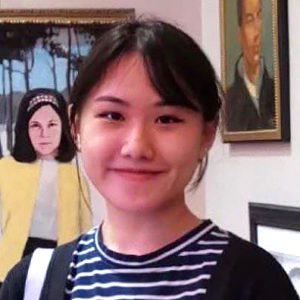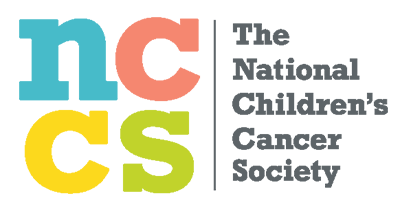Meet Angela Sun

Years Awarded:
2022-2023
2021-2022
2020-2021
2019-2020
Survivorship means that you get to push the restart button on your life so that you can experience small details from a different perspective.
In my junior year, I was diagnosed with a rare form of cancer called Juvenile Granulosa Cell Tumor. When I was diagnosed, the cancer had already advanced to Stage III, and the estimated five-year survival rate was only twenty-five percent. While my classmates spent their vacations lying on sandy beaches, I lay in a hospital bed while toxic chemotherapies coursed through my veins.
During my first round of treatment, l had my first near death experience, as if cancer wasn’t already bad enough. I had an anaphylactic reaction to Etoposide, a common chemotherapy agent. As soon as the nurse stepped outside the room, I couldn’t breathe, and I immediately broke out in hives. I remember thinking, “This is it. I’m really going to die, and I haven’t even tried Chicago deep-dish pizza yet.” Most people think that cancer is the worst part, but it’s actually the chemotherapy that makes you feel sick. Walking up the stairs with a basket of laundry makes you feel like you just ran a marathon, and the person looking back at you in the mirror suddenly doesn’t look familiar anymore.
It was difficult to adapt to the reality of being a cancer patient; however, with each round of treatment, I began to learn different tricks to overcome the pain and discomfort. I chewed on mints to keep the taste of saline out of my mouth, l taught myself how to subdue a hot flash, and I learned the placements of my best veins so that I wouldn’t have to be stuck with a needle more than once. I also developed an affinity for Bingo because it brought me closer to other cancer patients.
I learned that the best way to overcome cancer is to maintain a positive attitude. Even though I lost my hair, my newfound baldness was extremely efficient in the summer-time to ward off heat. I embraced my bald head like an Olympic gold medal. It wasn’t a symbol of how I was a victim of cancer, but rather how I was a victor over cancer. I also made an “apoca-list” of things I wanted to do once I got better. The term “apoca-list” refers to a list of things I want to do before an apocalypse strikes, and I prefer this term over “bucket-list” because I don’t plan on kicking the bucket anytime soon.
Survivorship means that you get to push the restart button on your life so that you can experience small details from a different perspective. The cacophony of everyday life becomes more harmonious, Tempura Udon noodles become more zesty, and the light at the end of the tunnel becomes more radiant. Surviving does not mean simply existing; it means living life wholeheartedly.
Most people assume that cancer is a death sentence. On the contrary, I’ve never felt more intensely alive. I’ve learned to appreciate the world around me because I realized that being alive is an incredible gift. There is no reason why I can’t be part of that twenty-five percent survival rate, and even if I’m not, I’m determined to live my life to the fullest each day. I want to explore the world, to immerse myself into different cultures, and to achieve new levels of knowledge. I want to eat spicy Chongqing hotpot in a dimly lit alleyway in China, I want to gaze at the Sistine Chapel ceiling until my neck grows sore, and I want to feel the sunlight bouncing off the walls at the Palace of Versailles. There is still so much I want to do and so much I want to see. Once I regain my strength, I am determined to explore every facet of the world.
